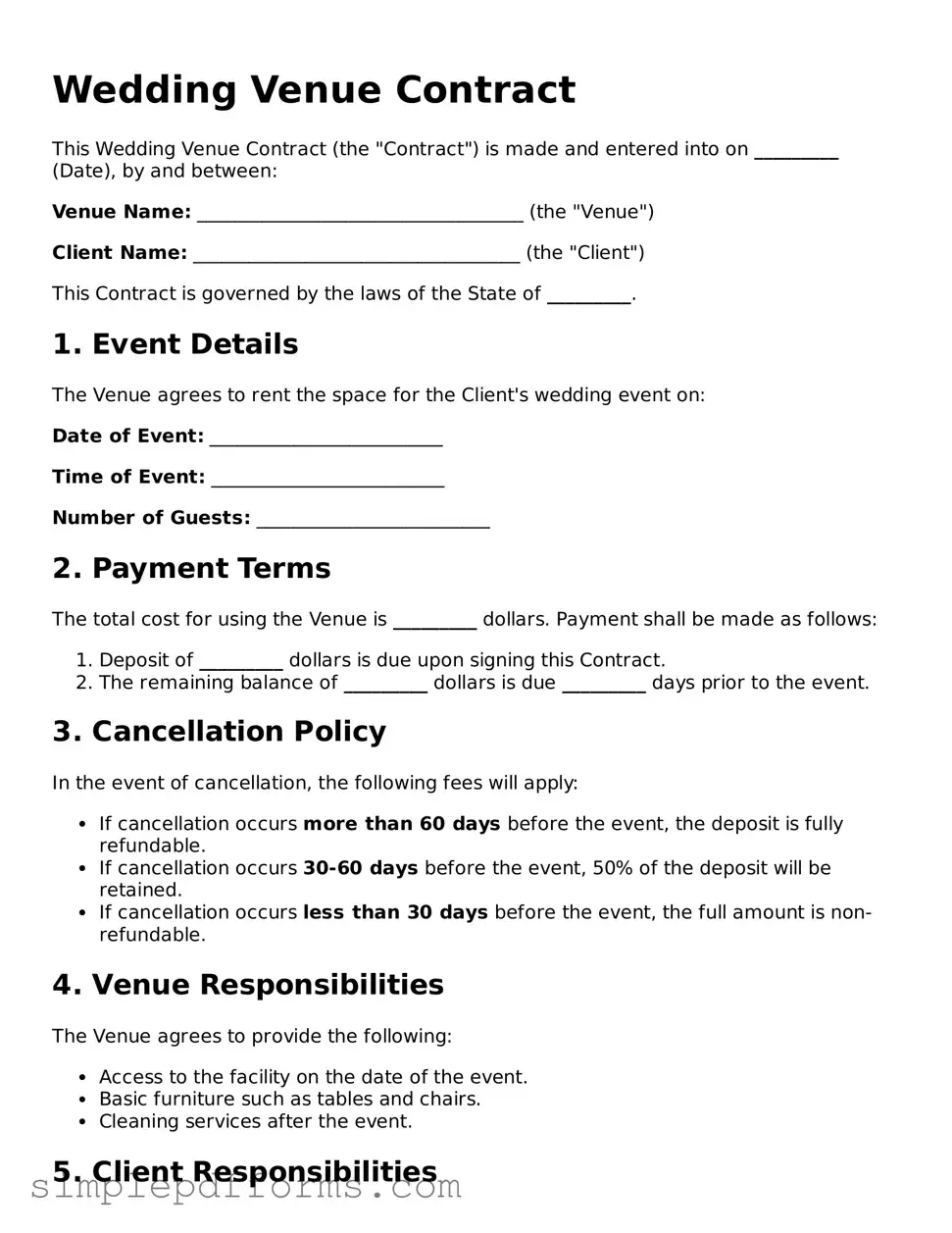Free Wedding Venue Contract Form
A wedding venue contract is a legal agreement between a couple and a venue that outlines the terms and conditions for hosting a wedding. This document ensures that both parties understand their rights and responsibilities, helping to prevent misunderstandings. By clearly defining details such as pricing, capacity, and cancellation policies, the contract serves as a crucial tool for planning a successful event.
Open Wedding Venue Contract Editor Now

Free Wedding Venue Contract Form
Open Wedding Venue Contract Editor Now

Open Wedding Venue Contract Editor Now
or
Get Wedding Venue Contract PDF Form
Your form is waiting for completion
Complete Wedding Venue Contract online in minutes with ease.